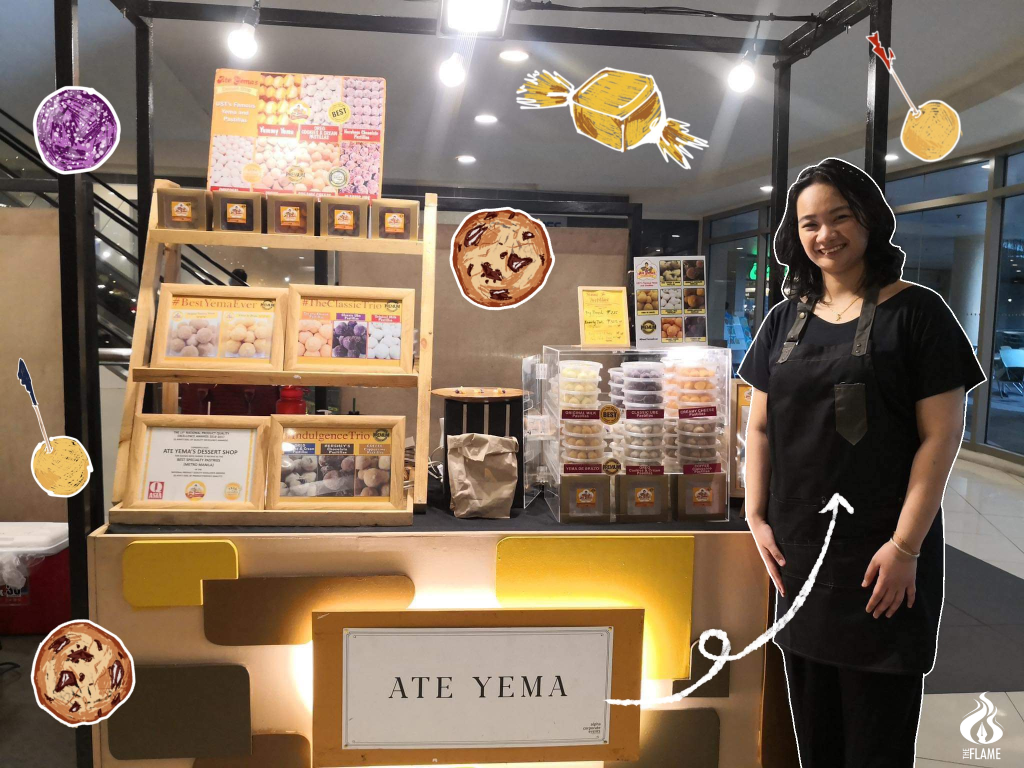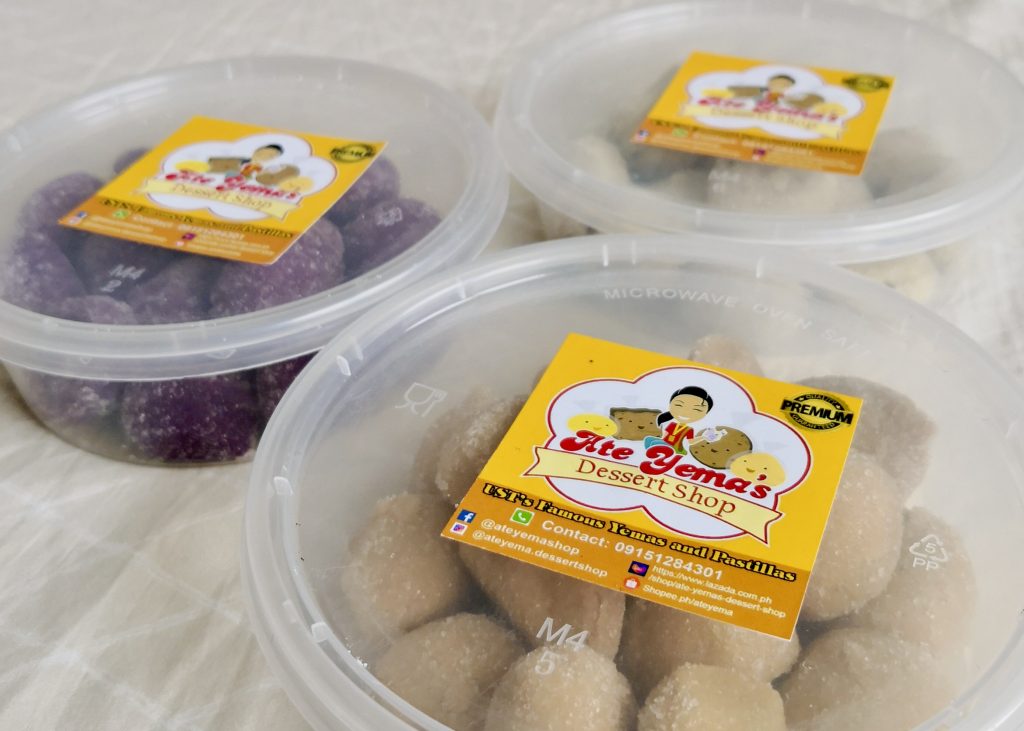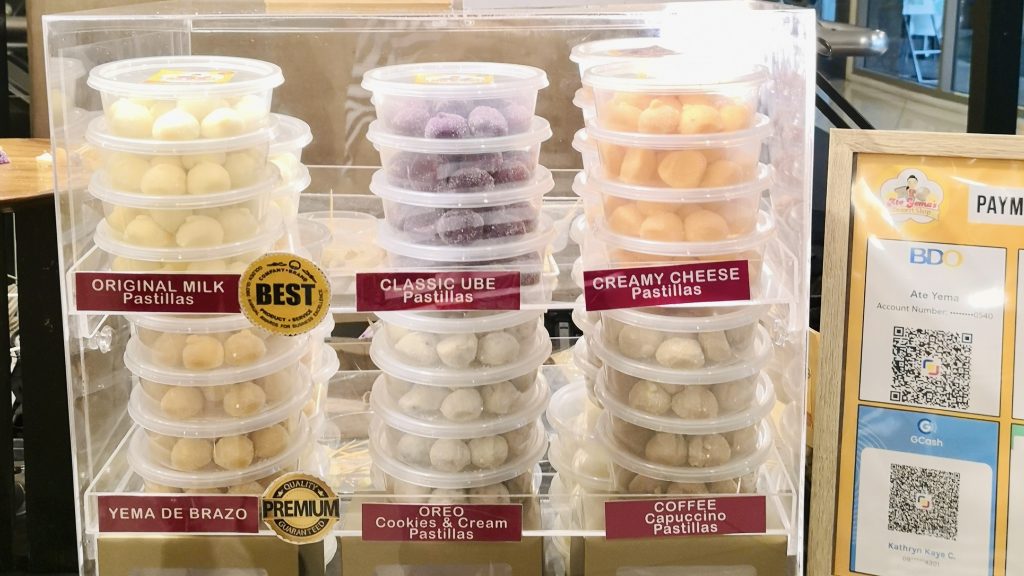
MORE THAN 15 years have passed since Kathryn Kaye Carpio sold her first yema on the University grounds.
Physically spent from a holiday bazaar in Glorietta, she answered a phone call from a young Thomasian student on the drive home. The quick call suddenly took her on a detour to memory lane.
“When we started, we were surprised [that] it [yema] was being enjoyed. […] We were in UST, I was still selling in the school then, we roamed around each and every building. When I get exhausted, we stay in the carpark. The students know I sell [yema] so they voluntarily come to me and purchase some,” Carpio said.
It was an old routine for Carpio to ball pastries, head to the University, and beam at students as she strolled and asked her signature question, “Hi, guys! Would you like to buy some yema, pastillas, or food for the gods?”
She became a familiar face on campus. If one asks students and employees of the university about her, they would probably call her ‘Ate Yema’ and describe her as a jolly merchant of goodies.
Yema, the core of Carpio’s labor, is the product of her dedication to her family. Within those fifteen years, she found solace in the lessons she strongly upholds until today.
Beginnings

Carpio’s family has been selling yema, pastillas and other native desserts since she was in high school. It started as a seasonal family business.
In December 2006, Carpio’s family had an excess supply of yema, leading her to her entrepreneurial journey.
“Sometimes, as a little girl, I would also sell to aunties, lolas so that we would have money,” she said.
Her business debut was unforgettable. On the third day of January 2007, she had at least two reasons to celebrate: It was her birthday and she was able to sell all her goods.
After the birth of Ate Yema, Carpio started selling an average of 75 pieces for P5 per piece. She would stroll by some of the University’s landmarks to greet the students with handmade delicacies in her arms. The Beato Pavilions and Santisimo Rosario Parish were her usual selling areas.
By then, the students recognized Ate Yema’s tagline, “Hi, guys! Would you like to buy some yema and food for the gods,” which later became Carpio’s business identity in social media. Within a span of ten days, her Facebook fan page amassed a staggering 14,000 likes and more students recognized the tagline.
While her business managed to create a buzz, the popularity of her dessert also gained the attention of the University’s administration, prompting her to seek the necessary clearance to operate.
“In my letter, I said it was my way of providing for myself and it was [also] my way of providing for my studies,” Carpio stated as she recounted how she secured her permission letter from the finance office.
Nursing job opportunities were unattainable then.
“It was a miracle [that] it was approved,” she added.
Beyond UST

In 2007, financial difficulties discouraged Carpio, then a nursing student, from pursuing medicine.
It was through selling yema and pastillas
She trained at the UST Hospital for a few months before deciding to pursue a master’s degree in business administration from the same University in 2012.
“I was doing better in business. I was earning money there already, instead of still going abroad to find a job, (I decided to stay),” Carpio said.
Ate Yema’s business pickup line has gone beyond the Thomasian community. She now offers her desserts in weekend and holiday bazaars in malls like TriNoma, SM Aura, Robinsons Magnolia, and Glorietta.
It has been more than four years since Carpio left UST but some Thomasians still miss her presence, something that reminds them of the value of hard work, persistence and a jolly spirit.
Some of them would still search for Ate Yema in mall bazaars to reminisce about their UST days and to catch up with her.
Eventually, Carpio came to view some of her customers as more than just patrons or suki.
She recalled praying for the students whom she had befriended while selling her treats.
“I want to help people […] I do ask God to bless them [students]. Of course, you like to see your schoolmates pass regardless of what their course is.”
While operating in an environment where small enterprises are struggling to stay afloat and the competition is hefty, Ate Yema remains determined to flash her warm smile, deliver her signature line and peddle sweetness.
“The reason I achieve things is not for my own…I do not do that for my own benefit, I do that to say thank you to my family,” she said. F – Giannah Erin Ochoa



